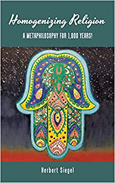
 |
From the prodigious imagination and intellect of the author comes a story of destruction and intervention, galactic innovation and intrigue, and artificial intelligence and human insight. As the world hurtles toward omnicide, forces gather to seek solutions through political structures, foreign policy, religion, and technology. Through these segments of power, a passel of characters espouses deep philosophies about human behavior, social constructs, and scientific truths.
A complex world history infuses this futuristic, forward-thinking work that is hard to categorize. It reads a bit like a real-time play-by-play of problem-solving on a grand scale as the Earth faces certain doom. The Moses Commission is formed to bring the best minds together to save the human race. Feasibility studies are conducted to test theories and possibilities, and finally, reports are produced to convey the findings and present conclusions to guarantee human survival. The result is a fascinating experimental response to a doomsday scenario.
Siegel writes that “this is a story of what happened before, during, and after” omnicide. The last half of the book jumps 500 years into the future, and Siegel embraces the best of science fiction by imagining a world order contending with a future full of challenges. With frightening familiarity, the limits and dangers of technology are exposed, and uncertainty abounds as decisions must be made and consequences accepted. This future seems plausible, and humanity’s hold on hope is tenuous, which keeps the readers racing to see how the world can be saved. With dense language and complex ideas, Siegel takes readers through a layered and unrelenting examination of a future world breaking apart and the calculated response of those with the power and knowledge to save it or abandon it.